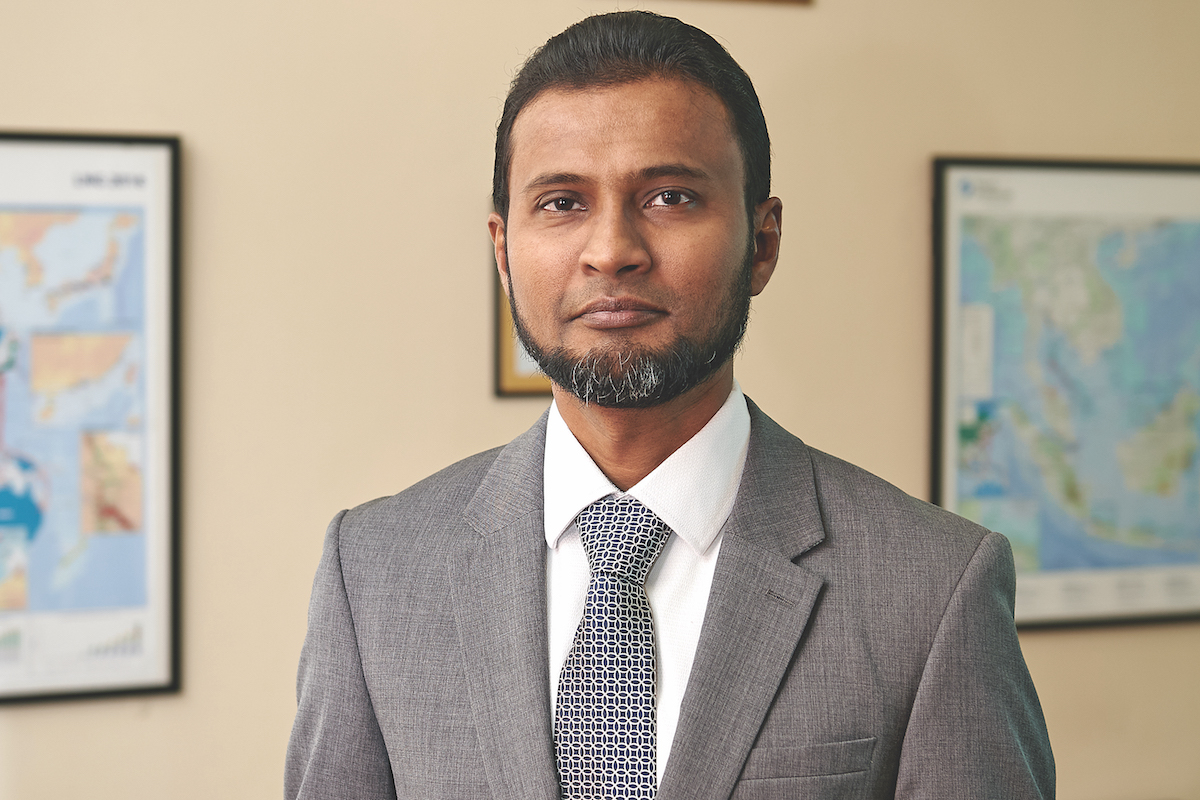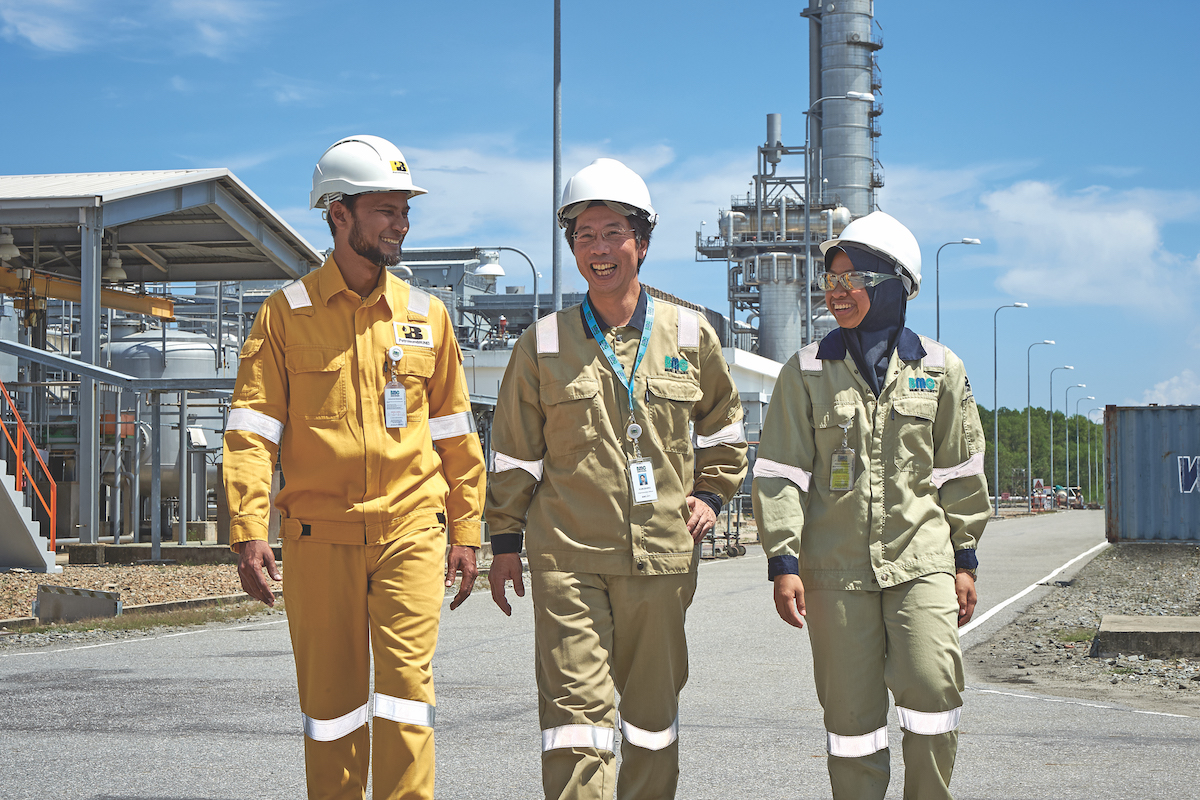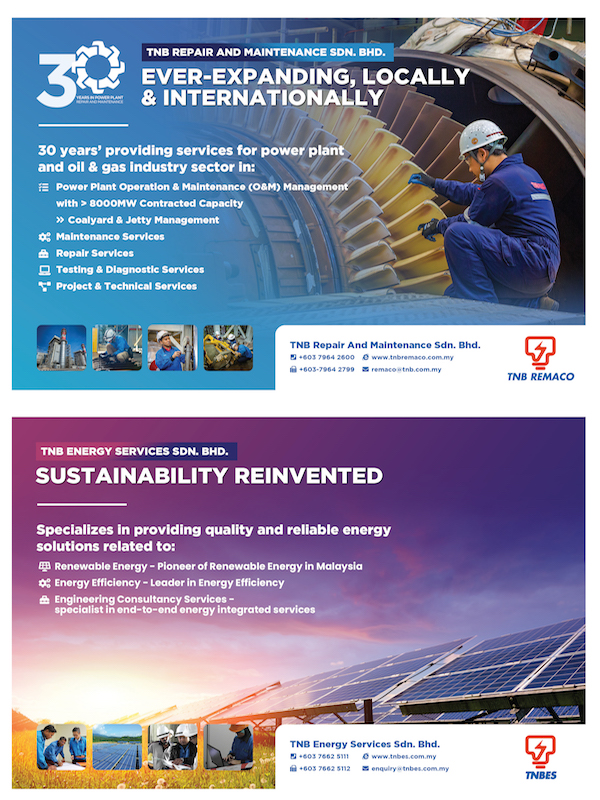Taking a leap of faith into the unknown can be a daunting prospect but with great risks come great rewards and Haydn Furlonge, CEO of Brunei National Petroleum Company (BNPC), has no regrets about the risks that he’s taken.

This includes taking an opportunity to move to Brunei Darussalam, a country he knew little about before stepping into his current role. “It was an opening that was presented to me.
I’m not sure why it came along but it did, and I took a bold step with the support of my family,” he says. Haydn says he is grateful for the opportunity provided by the Government of His Majesty the Sultan and Yang Di-Pertuan of Brunei Darussalam. “So far, so good. I don’t have any regrets about these leaps of faith I have taken.”
“I don’t have any regrets about these leaps of faith I have taken.”
While Haydn was attracted to the role because he wanted to experience a different business culture, with Brunei being on the opposite side of the world to Trinidad and Tobago – where he grew up – the challenges of the oil and gas industry also appealed to him.
“When I joined the industry in Trinidad and Tobago, it was a very difficult time for the sector in general,” he says. “That was more than 20 years ago and the challenge has been how to develop a strategy to survive in the short-term but also be ready for new opportunities.”
Haydn has had a roundabout path into the oil and gas industry. He postponed working in the sector after completing a degree in chemical and process engineering to undertake research at The University of the West Indies and Imperial College London.
During his time with BNPC, he has enjoyed the fact that it is a constantly changing and dynamic industry. “It goes through cycles but there is also a lot of volatility in the market, and therefore significant risk in the business. Dealing with all of these variations and dynamics makes the job very interesting,” Haydn says.
For Haydn, one of the key facets of the industry is having good relationships – he believes they are vital because no single person can build an entire energy value chain. This means always working with other entities, communities and government agencies.
“I think the dynamics and the relationships are the most important aspects,” he says. “There is excitement in finding the right solution to make everything work. At the end of the day, it takes a long time, because the nature of it is that you spend several years developing a business and the benefits only present themselves well into the future.”
Brunei Darussalam has a long history in the energy sector, and the industry has played a critical role in the country’s economy, contributing to more than 60% of its GDP. The South-East Asian nation is looking to continue capitalising on this and making the most of its oil and gas fields, while also boosting local content.
“I have seen the energy sector contribute to economic growth and I believe in the potential for another wave of development in Brunei,” Haydn says. “I think what is important for us is to maximise value from that growth and be able to realise not just the monetary aspect but also the added value in terms of job creation, skills development and local businesses.”
Those principles are helping to drive BNPC, a varied organisation that is involved in every segment of the energy value chain, including exploration, development, production involving deep- and shallow-water projects, petrochemicals, marketing and trading, and energy services. Given that the company grew very quickly, Haydn says he realised the way it worked had to change.
“The company is very diversified – we actually have 12 subsidiaries and joint venture companies, so managing all of these became quite challenging with a relatively small staff base. But with strong teamwork and dedication, we are able to overcome those challenges,” Haydn says.

The company seized the chance to consolidate, and to change the structure and governance model. Changes included focusing on new areas and aligning the organisation into an integrated business, which he believes will maximise returns and help manage the risks of the oil and gas business by distributing risk across the full chain.
“We now work in a much more agile manner, meaning we control dynamics very quickly; we can kickstart projects and initiatives with multidisciplinary teams and, once these are mature, we pass them on to the respective lines,” he says.
BNPC is now turning its focus to boosting the performance of its existing assets. “Our methanol production plant and tanker businesses are back on track; our marketing and trading portfolio has increased, our fabrication yard has new activity, and we won a new offshore services contract with our partners,” Haydn explains.
“We also acquired new interest in a block in Brunei and are fast-tracking this development to bring the molecules to market.” The company is also looking to explore and develop available hydrocarbon resources in Brunei with existing international oil and gas companies, as well as seeking new players to work with – such as Posco International, with which it signed a memorandum of understanding in November 2018 – to help develop a full gas value chain business.
Further, it is actively pursuing business in the services sector and is forming partnerships to provide services in drilling, decommissioning, EPC, rotating equipment, maintenance and repair, and renewable energy – the two latter activities with TNB REMACO and TNB Energy Services, wholly owned subsidiaries of Tenaga Nasional Berhad (the largest electric utility company in Malaysia and largest power company listed in South-East Asia).
“For us, it is about growth for the organisation but also about maximising in-country value – local job creation and local business development. This is going to be one of the key focuses for us going forward,” Haydn says.
“Brunei is at the doorstep of the highest demand growth market in the world.”
“Brunei is at the doorstep of the highest demand growth market in the world.
The industry has been growing very quickly within a short period, so it
is an extremely exciting time.”

Haydn describes his leadership style as being driven by transformation and improving efficiency and decision-making, which he says takes a collaborative effort – bringing everyone to the table and allowing different views to be heard.
“The decision, at the end of the day, will have a lot more buy-in that way and everyone will be more motivated for its implementation,” he says. “Building competency is also absolutely critical. One of the things we have done is put the organisation and our staff on a fast track to competency development, and succession planning for future leaders.”
Haydn’s belief in the importance of teamwork extends to how business is conducted – the nature of the oil and gas industry is such that it operates as a chain of activities, with everyone along that chain playing a key role.
Proudly supported by:




